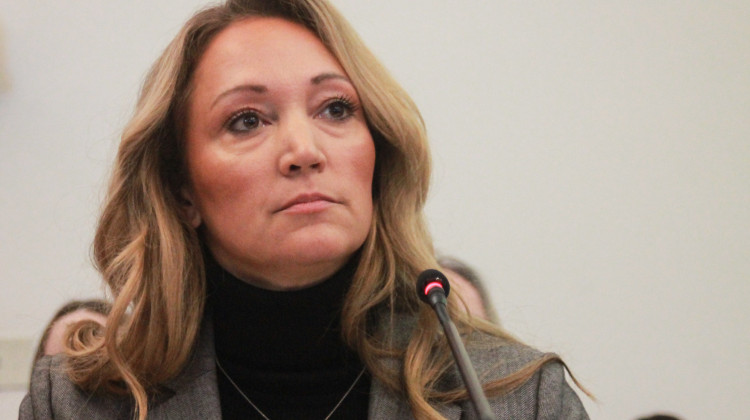
Eli Lilly's Corporate Headquarters in Indianapolis. In response to the new coronavirus, the company has notified employees to work from home if possible.
Lauren Chapman/IPB NewsEmployers, including Indianapolis-based Eli Lilly, have encouraged some employees to work from home in response to the new coronavirus. Some say the most vulnerable Hoosiers are not in jobs that would allow them to take the same precaution.
As the number of positive tests grows, companies are having workers do their jobs from home to help reduce the spread of the COVID-19.
Indiana Institute for Working Families senior policy analyst Erin Macey says that doesn’t help many Hoosiers working in industries like retail, dining and other service sectors relying on a paycheck.
“There are disparities along racial and ethnic lines,” says Macey. “So according to national-level data from the Bureau of Labor Statistics, white and Asian workers are more likely to work in jobs where they can work remotely than black and Hispanic or Latino workers.”
She says there are also educational disparities – those with college degrees are more likely able to work from home than those without.
READ MORE: What Do You Need To Know About Coronavirus? We’ve Got Answers.
In addition to health officials asking the public and businesses to take precautions to prevent spreading virus, the Indiana State Department of Health recommends if you’re sick, stay home.
Macey says not all Hoosiers can do that, especially those working low-wage jobs including the service industry.
“We are seeing all the recommendations to stay home when you’re sick, but we know nearly one-in-three workers in Indiana can’t earn paid sick days and those folks are going to have a really difficult time following that advice,” she says.
Macey says Indiana does not have a paid sick leave law in place. About a dozen other states do.
Legislation recently introduced by Democrats in the U.S. House and Senate would require all employers to give workers a minimum number of seven sick days annually, and more in a public health emergency.
Some Hoosier workers may also have to make tough choices as schools face decisions about how to avoid spreading the new coronavirus.
School officials in Avon canceled classes through March 20 after a student tested positive for the new coronavirus. The school implemented e-learning days while the district deep cleans classrooms and buses.
Macey says some parents will have a hard time and will need additional support if schools close.
“We’re gonna see disparities in the parents that can handle this flexibly by working from home while their kids are home and other parents are gonna have to make some really difficult choices about whether or not to go to work and what kind of care they can find for their children,” she says.
A study conducted by Indiana University’s Public Policy Institute and Early Learning Indiana found a lack of childcare in the state costs Indiana more than $1 billion a year in productivity.
Contact Samantha at shorton@wfyi.org or follow her on Twitter at @SamHorton5.
 DONATE
DONATE







 Support WFYI. We can't do it without you.
Support WFYI. We can't do it without you.